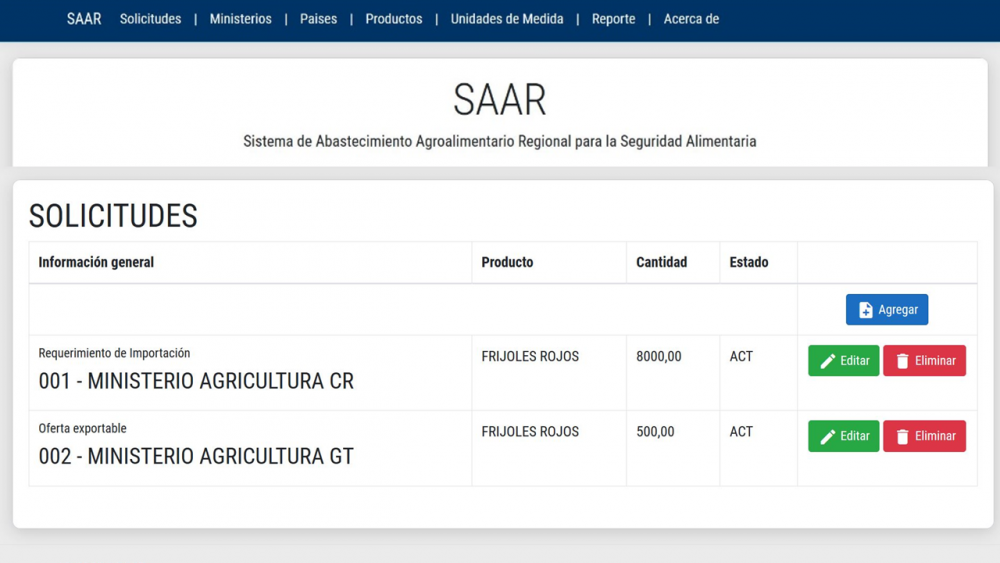Created by IICA and the European Union, the tool will be utilized by ministers and secretaries of Agriculture in those countries.

San Jose, 30 April 2020 (IICA). Central American countries, as well as the Dominican Republic and Mexico, will be able to monitor food supply by means of a new digital tool that seeks to strengthen food security in the region during the Covid-19 pandemic.
Created by the Inter-American Institute for Cooperation on Agriculture (IICA) and the European Union (EU), the Regional Agrifood Supply System for Food Security (SAAR) will be exclusively available to the ministers and secretaries of Agriculture of Belize, Costa Rica, the Dominican Republic, El Salvador, Guatemala, Honduras, Mexico, Nicaragua and Panama.
The application will enable authorities in the agriculture sector to share and obtain information, in real time, regarding surpluses or shortages of basic grains, fruits, vegetables, meat, dairy and other products in their countries; this, in turn, will foster intraregional trade as well as improve food supply and availability.
The system will also provide information on markets and import requirements; issue notifications regarding reference prices; as well as facilitate communication between ministers and secretaries via a chat box, among other features.
The tool was presented by the Director General of IICA, Manuel Otero, during a virtual meeting with the ministers and secretaries of Agriculture of the aforementioned countries. The system is one of several technical cooperation services that the Institute is developing to minimize the impact of Covid-19 on the agrifood sector in its member countries.
In attendance at the meeting were the Minister of Agriculture and Livestock of Costa Rica, Renato Alvarado; the Secretary of Agriculture and Livestock of Honduras, Mauricio Guevara; the Minister of Agriculture and Livestock of Nicaragua, Edward Centeno; the Deputy Minister of Rural Economic Development of Guatemala, Eduardo Mendoza; the Director of the Sectoral Policies and Planning Office of El Salvador, Enrique Parada; the National Director of Agriculture of Panama, Reinaldo Solís; and the CEO of the Ministry of Agriculture of Belize, José Alpuche.
“The application will enable us to stay in contact; it will facilitate communication and exchanges aimed at making food security in our region more sustainable,” remarked Centeno.
Deputy Minister Mendoza, of Guatemala, added that the system “will be very useful within the context of this crisis to support our production sectors and maintain commercial activities.”
The app Health and safety measures for the agrifood sector during Covid-19, currently available for download on Android devices, was also presented during the virtual meeting.
Developed by IICA and the EU within the framework of the AGRO-INNOVA project, with support from the Institute’s Fab Lab, the application is geared towards agricultural producers and workers. The purpose of the app is to prevent the spread of the coronavirus by recommending good health and safety practices that can be applied in agricultural production and food safety processes.
More information:
Erick Quirós, IICA Special Affairs Coordinator for the Central Region.
erick.quiros@iica.int
Pedro Avendaño, Specialist in Family Farming and Rural Development at IICA.











